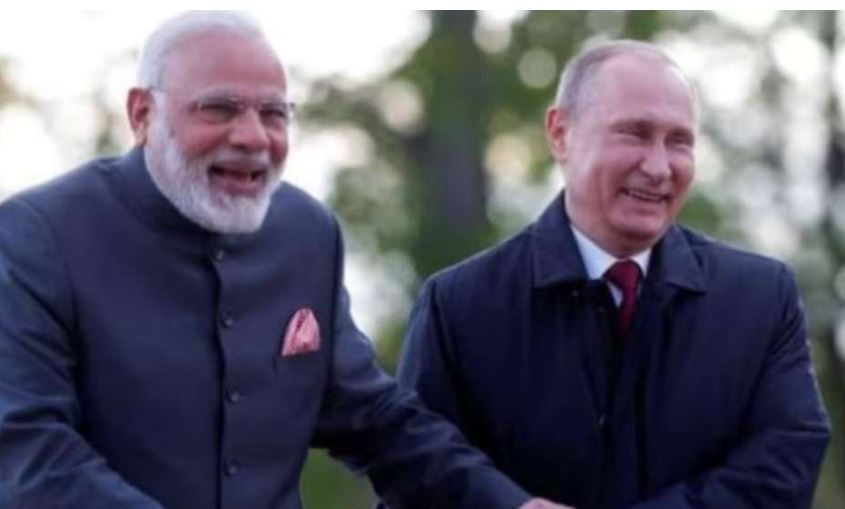Prime Minister Narendra Modi’s visit to Russia for the 22nd Annual Summit with President Vladimir Putin is laden with anticipation and hope for the Indian diaspora residing in Russia. This significant event, scheduled for July 9, 2024, is expected to address critical issues that have emerged in the wake of the Ukraine war. The Indian community, which includes businessmen, students, and professionals, is grappling with challenges such as trade and payment imbalances and the contentious issue of Indian recruits in the Russian military.
The Economic Conundrum
Trade and Payment Imbalances
One of the most pressing issues for the Indian diaspora in Russia is the economic imbalance resulting from the Ukraine war. Rameshwar Singh, who has lived in Russia for over four decades and runs the NGO Disha, underscores the potential for a “golden era” in India-Russia relations. However, he laments the “vacuum” left by Western companies’ exit from Russia, which has not been filled by Indian enterprises. The Putin-Modi summit is seen as a crucial opportunity to resolve the payment issues plaguing existing businesses.
India’s import of Russian oil has surged 20-fold, driving bilateral trade to over $64 billion in the past year. Yet, Indian exports remain stagnant at approximately $4 billion, creating a significant trade deficit. This imbalance can only be addressed by establishing more banking channels insulated from Western sanctions, which have already targeted thousands of entities worldwide.
Military Recruitment Concerns
Indians in the Russian Military
Another critical issue facing the diaspora is the recruitment of Indians by the Russian military, often under misleading circumstances. The situation has become a public concern in India, with families urging the Ministry of External Affairs to negotiate early discharges for those serving at the frontlines. Indian Ambassador to Russia, Vinay Kumar, has highlighted this issue in bilateral discussions, including meetings between External Affairs Minister S. Jaishankar and Russian Foreign Minister Sergey Lavrov.
Ashok Raja, head of the Indian community in Siberia, points to the lucrative salaries and promises of permanent residency that lure Indians into the Russian military. He calls for stricter verification of recruiters in India to prevent such situations.
Community Response and Expectations
Preparing for the Summit
The Indian community in Russia is actively preparing for the Prime Minister’s visit. Volunteers, including students like Beenish, are contributing as interpreters and logistical coordinators. Beenish, pursuing a Ph.D. in International Relations, hopes the summit will revitalize India-Russia strategic ties. She and her peers anticipate that PM Modi’s address will outline plans for strengthening bilateral relations.
Cultural and Traditional Links
The visit also highlights the enduring cultural and traditional ties between India and Russia. Natalya, a Russian who traveled to India to learn the sitar and Hindustani classical music, embodies this connection. She will perform at the community event, symbolizing the rich cultural exchange between the two nations. Her participation underscores the deep-rooted and multifaceted relationship that transcends political and economic spheres.
The Broader Implications
Post-Ukraine War Dynamics
The post-Ukraine war scenario has presented both challenges and opportunities for India-Russia relations. While the Western sanctions have pushed Russia to seek partnerships in Asia, including India, the potential for enhanced trade and cooperation is marred by practical hurdles like payment imbalances and military recruitment issues. The Modi-Putin summit is expected to address these concerns comprehensively, paving the way for a more balanced and mutually beneficial relationship.
Conclusion
Prime Minister Narendra Modi’s visit to Russia comes at a crucial juncture for the Indian diaspora and the broader India-Russia relationship. Addressing the economic and military recruitment issues is essential for leveraging the potential of this bilateral partnership. The diaspora’s hopes are pinned on this summit, anticipating resolutions that will enhance trade, ensure fair treatment of Indian recruits, and strengthen cultural ties.
Summary Table
| Key Learning Points |
|---|
| Economic imbalance due to trade and payment issues |
| Recruitment of Indians in the Russian military |
| Cultural and traditional ties between India and Russia |
| Strategic implications of post-Ukraine war dynamics |
| Community expectations from Modi-Putin summit |
Soumya Smruti Sahoo is a seasoned journalist with extensive experience in both international and Indian news writing. With a sharp analytical mind and a dedication to uncovering the truth, Soumya has built a reputation for delivering in-depth, well-researched articles that provide readers with a clear understanding of complex global and domestic issues. Her work reflects a deep commitment to journalistic integrity, making her a trusted source for accurate and insightful news coverage.



